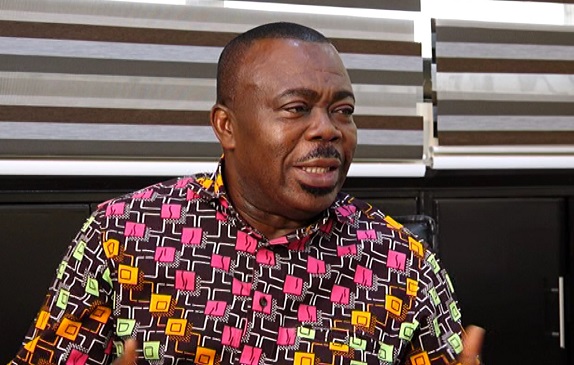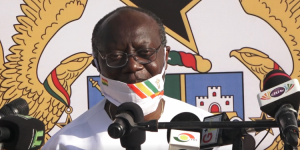An intense new focus on state-owned enterprises by government through its recently established State Interest and Governance Authority (SIGA) last week culminated in the announcement of efforts, in consultation with relevant stakeholders to develop a “Good Corporate Governance Code” for State Owned Enterprises. This new initiative suggests that the transformation of the erstwhile State Enterprises Commission into SIGA a couple of years ago goes far beyond a mere change of institutional name.
Mr Stephen Asamoah Boateng, the Director-General of SIGA, said inadequate governance frameworks and procedures were critical contributors to many specified entities’ poor financial performance in Ghana hence the initiative. Last week a stakeholders’ consultation forum on the Draft Code of Corporate Governance for SOEs which has been drawn up under the auspices of SIGA, was held in Accra. The draft Code has been designed to strengthen good corporate governance practices for SOEs in order to improve the way they are managed and ultimately how they perform with regards to both impact and finances.
However Mr Stephen Asamoah Boateng, the Director-General of SIGA, was given a rude awakening to the sheer size of the challenge he is seeking to overcome – barely one third of the chief executives of the SOEs, whose inputs are being sought into the Code, failed to even turn up for the workshop, although since the event was streamed live, they had an excuse of sorts. But an angry Asamoah Boateng, asserting that the sheer importance of the event demanded their physical attendance, consequently publicly warned that CEO s who show a lack of commitment to their corporate governance responsibilities would lose their jobs.
But the impunity with which some SOEs are run clearly illustrates the underlying management difficulties they face – in many cases board appointments, including those of the managing director are seen as rewards for past political support or bribes for anticipated political support going forward. The resultant lack of regard for duly constituted supervisory authority subsequently seeps downwards from the Board and top management.
This is, in part, the situation which Asamoah Boateng wants to correct, pointing out that inadequate governance frameworks and procedures are critical contributors to many SOEs ultimate poor financial performance in Ghana hence the initiative.
Last week’s forum was meant to provide a platform for stakeholders to offer feedback and input into the Draft Code, but the failure to attend it by the majority of the CEOs shows a lack of willingness to be reigned in by adherence to a formalized, binding code of corporate governance.
However, Asamoah Boateng has shown an understanding of the problem and a willingness to try and address it, at the forum he admitted that State Agencies are governed by a complicated web of leaderships involving Parliament, Ministries, Regulatory Commissions, Boards, and Managing Directors or Chief Executives, all of whom have various reporting responsibilities.
“This has muddled the division of responsibilities and accountability for performance, especially between the Board and Management. In some cases, Chief Executive Officers and Board appointments are made based on political considerations rather than merit, contributing to the ineffectiveness of some Boards,” he noted.
Indicating his determination to curtail the inevitable shortcomings of this situation he asserted that “we cannot run State-Owned Enterprises the way we used to. If Specified Entities continue to underperform, we will not be deserving of our positions and compensation.”
The Director-General said SIGA was required by Section 4 (d) of its Act (Act 990) to develop a code of corporate governance to serve as a framework for Specified Entities’ actions and performance.
He said although SIGA was the driving force behind that endeavour, “we, however, believe that to produce a document that will stand the test of time, a quality document that will be owned and accepted by all stakeholders, requires the participation and involvement of all parties, hence the need for this forum.
“It is simple to make recommendations for how to proceed. To effect change on the ground, it takes foresight, a lot of hard effort, and a commitment to carry out policies at all levels of the economy’s decision-making,” he said.
Past experience suggests that for the initiative to work, the CEOs of SOEs need to be involved in its design as well as its implementation. He recounted previous instances where he had consulted some CEOs on the law setting up SIGA, before it was actually passed. According to him most of them paid little attention to the contents of the then impending law, only to express surprise at its contents when it was almost passed.
Last week’s workshop was held to prevent such surprises. Finally, when approved, the proposed code will impose sanctions on non-performing individuals and entities.
The draft code was drawn up largely by Yamson & Associates, the management consultancy run by the iconic Dr Ishmael Yamson, a former executive chairman of Unilever Ghana and one of the most respected corporate leaders in the country. The code seeks to establish operating procedures which will have to be adhered to by Boards and managements of SOEs and sets out the relationship between the two as well as financial authority limitations and financial reporting requirements.
The latter will prove crucial. Finance Minister Ken Ofori-Atta in July this year revealed that 47 SOEs had failed to file their annual financial statements to the Finance Ministry in accordance with the law. This was at an event to sign a performance contract with the CEOs as he revealed that at the end of 2019, a net loss of GH¢586.4 million had been recorded.
The 47 institutions have since 2016 failed to submit their annual financial statements in flagrant contravention of the Public Financial Management Act.
Indeed, more staggering is the revelation that only 14 out of the 126 SOEs operating in the country responded to the ministry’s directive to submit their annual statements in 2019.
Addressing Chief Executives Officers of SOEs at a performance signing contract, the Finance Minister said the revelation highlights the need for a renewed performance contract.
As of the end of 2019, an aggregate net loss of ¢586.4 million was recorded in the SOEs sector, and this compares to a loss position of ¢188 million in 2018.
Indeed between 2015 and 2019, SOEs have consistently posted negative operating margins, averaging around 10%.
This suggests that generally, operating expenses at state enterprises are rising rather than revenues coming in, a situation that does not signal a good picture.
Mr Ofori-Atta stresses that for the country to recover from the impact of the coronavirus pandemic, the state enterprises must pursue aggressive accountability, transparency and responsible custodianship.
The performance contract, an initiative of the State Interest and Governance Authority (SIGA), aims to evaluate and assess the performance of the CEOs.
President Nana Akufo-Addo is hopeful the SOEs can turn their fortunes around by leveraging on five key pillars.
“Streamlining government oversight of the SOEs sector, piloting corporate governance improvement, government on-lending policy, credit risk assessment and rationalizing compensation, as well as salary structure in the sector, are the key issues government is pursuing”, the President stresses.







